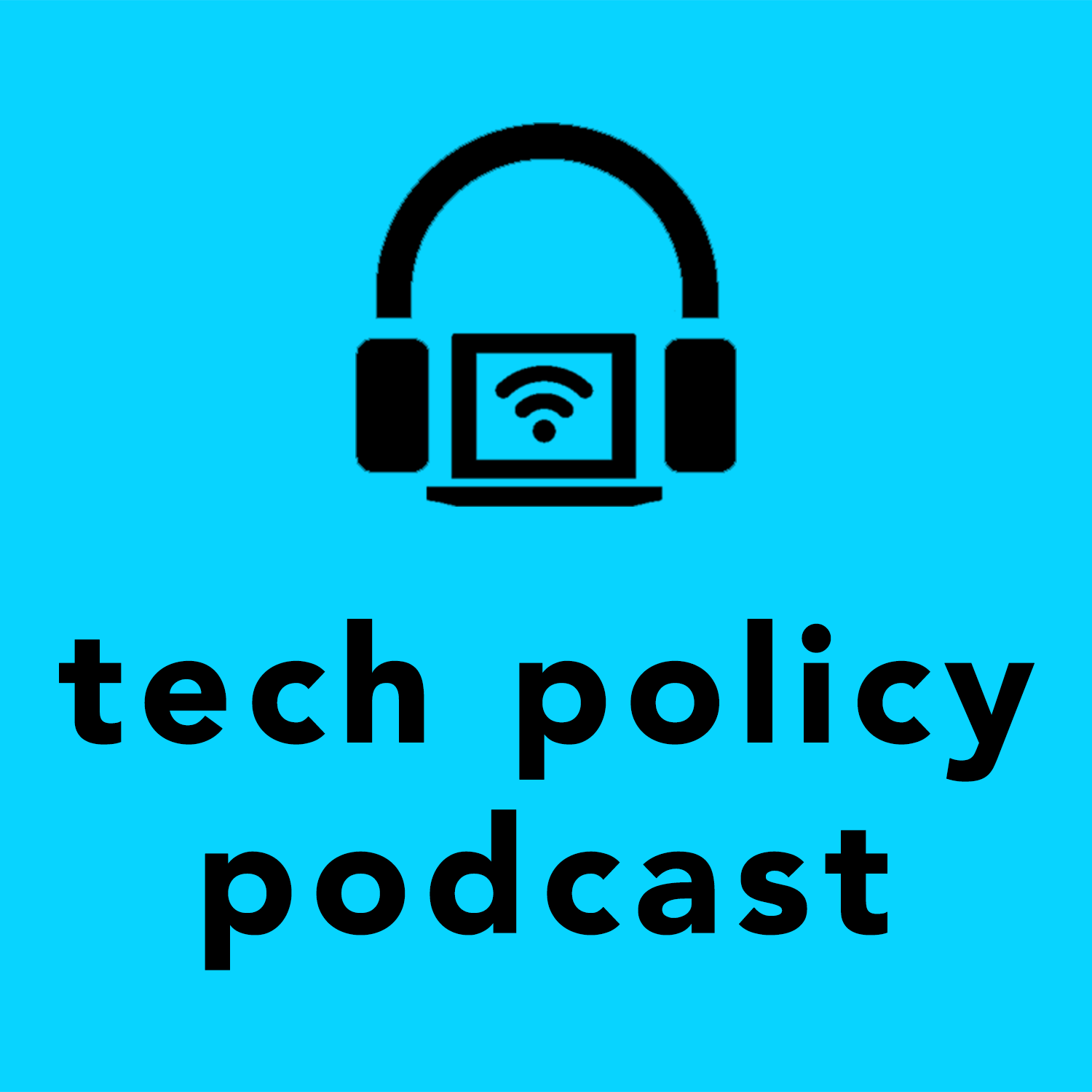Episodes
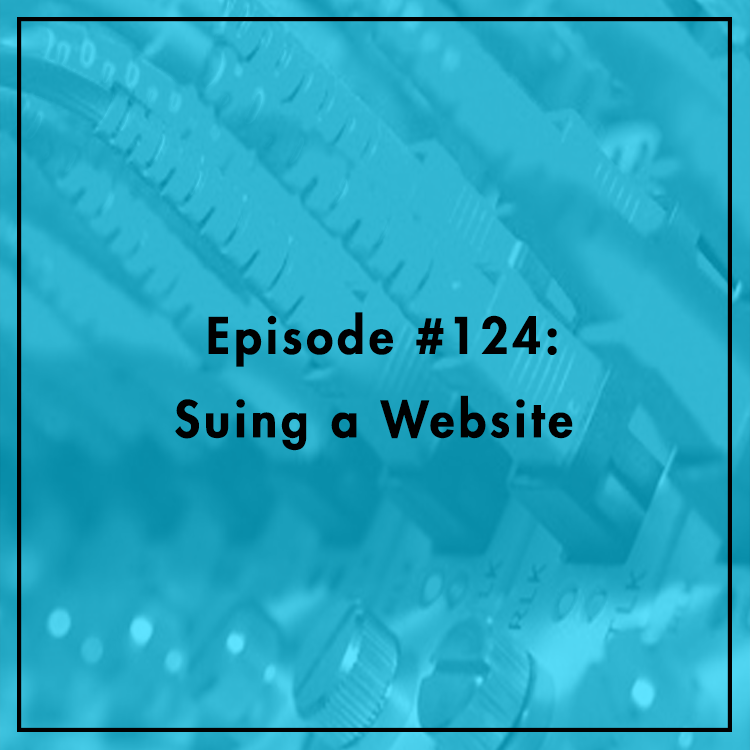
Tuesday Sep 13, 2016
#124: Suing a Website
Tuesday Sep 13, 2016
Tuesday Sep 13, 2016
Have you ever been wronged by a website? Have you ever wanted to sue it? Before you rush to hire a lawyer, you may wanna check up on federal law first. Back in 1996, Congress didn’t know much about the Internet. But Republicans and Democrats did at least understand that it was important, and that too many lawsuits against websites could mess it up for everyone. That’s why Congress enacted the Communications Decency Act. Section 230 of the law shields websites from liability for the content that users to the platforms. It’s arguably what led to the development of Facebook, YouTube and other user-generated platforms. So what’s the problem? Is Section 230 under attack? Are the courts paving the way for more website lawsuits? Cathy Gellis, a cyber lawyer and tech policy expert, joins the show to discuss.

Friday Sep 09, 2016
#123: Flytenow and Plane-sharing
Friday Sep 09, 2016
Friday Sep 09, 2016
You’re probably familiar with Uber and ride-sharing. But do you ever wonder why there isn’t something similar for air travel? A plane-sharing app? There was one, actually, but the Federal Aviation Administration shut it down. In December of 2015, the FAA banned flight-sharing, a ruling that forced the startup Flytenow to shut down its platform. Flytenow allowed private pilots to share the cost of flying with passengers going to the same destination by connecting them online. The company has sued the FAA to overturn the ruling, and TechFreedom and the Cato institute filed a brief in support of Flytenow. Evan and Berin discuss.
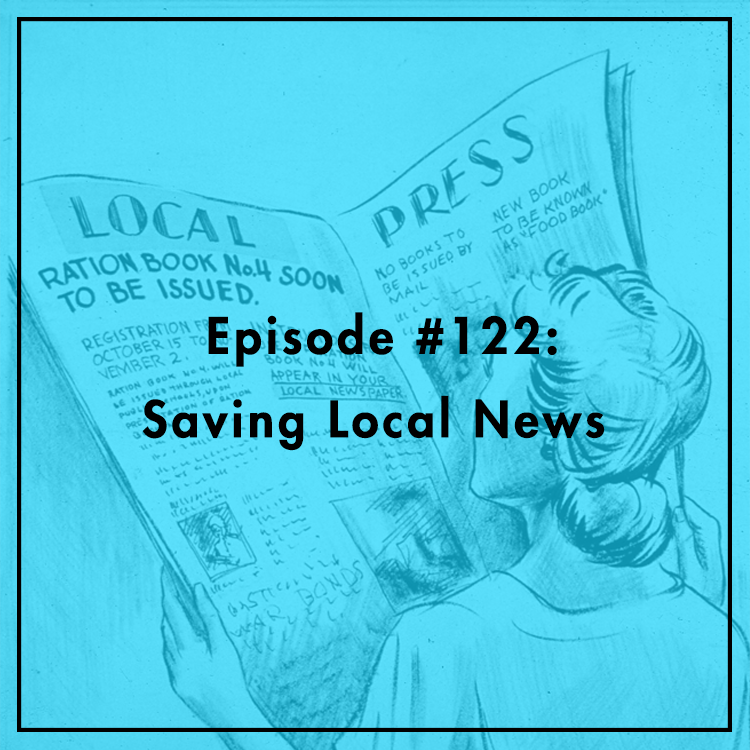
Wednesday Sep 07, 2016
#122: Saving Local News
Wednesday Sep 07, 2016
Wednesday Sep 07, 2016
Today’s media landscape looks nothing like the 1970s. Back then, newspapers, radio, and television were the only games in town. But despite such insignificant developments like Internet news and massive layoffs in traditional print media, FCC rules haven’t kept up with the times. Last month, the FCC voted to retain nearly all rules preventing the cross-ownership of newspapers, broadcast TV stations and radio stations in the same market. Evidence suggests that cross-ownership could help save the struggling print news industry by allowing local media to pool their resources and share newsrooms. Why is the FCC stuck in the past? How will these rules affect diversity in media? Matthew Berry, Chief of Staff for FCC Commissioner Ajit Pai, joins the show to discuss. For more, read Commissioner Pai’s dissent.
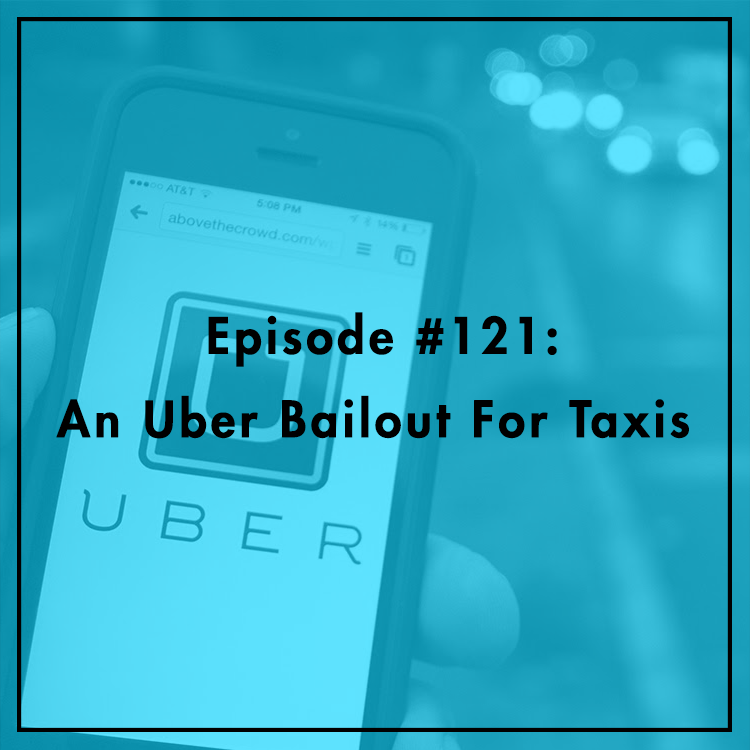
Thursday Sep 01, 2016
#121: An Uber Bailout For Taxis
Thursday Sep 01, 2016
Thursday Sep 01, 2016
It’s no secret that ride-sharing companies like Uber and Lyft have disrupted the taxi industry. While many cities have embraced the fierce competition, others have simply banned ride-sharing outright. But Massachusetts is taking a novel approach — forcing companies like Uber to subsidize their taxi competitors. A new 20 cent tax on ridesharing trips includes 5 cents that goes directly to the taxi industry. If it sounds unfair, then why are both the companies and Governor Baker (a Republican) supporting it? Should Uber subsidize taxis in other cities as well? What are the downsides? The Manhattan Institute’s Jared Meyer joins the show to discuss. For more, read his article in Forbes.

Wednesday Aug 31, 2016
#120: From 4G to 5G
Wednesday Aug 31, 2016
Wednesday Aug 31, 2016
The wireless industry is gearing up for 5G, the next generation of networks. And don’t let the numbers fool you — 5G speeds are going to be much faster than 4G. But what’s it gonna take to get us from HD streaming to 4K? From augmented to virtual reality? Major obstacles remain in the way. Whether it’s acquiring more spectrum, building small cells, or navigating a web of regulation, carriers face significant hurdles. Can 5G support the “Internet of Things?” What effect will FCC regulations have on deployment? What can government do to help? Peter Rysavy, a wireless technology expert and president of Rysavy Research, joins the show.
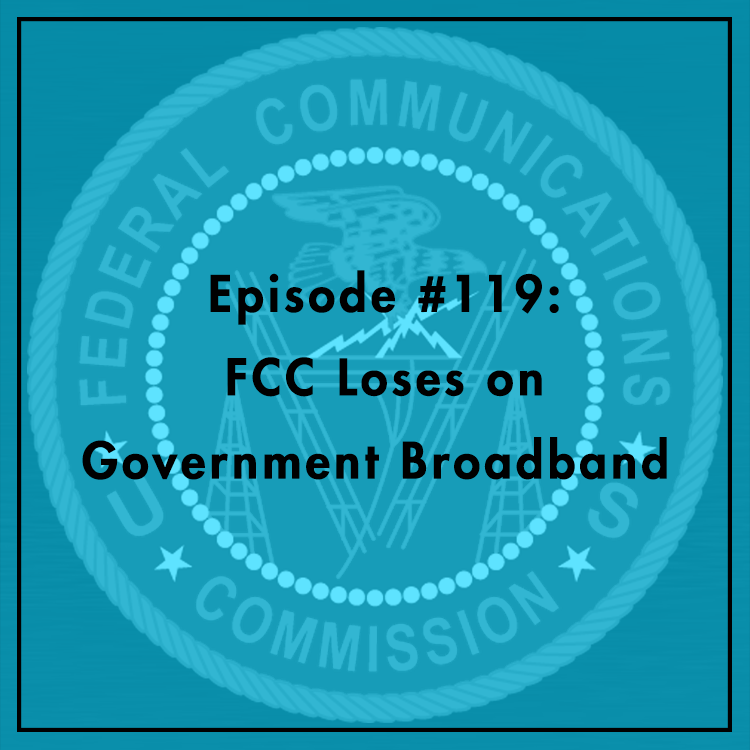
Friday Aug 26, 2016
#119: FCC Loses on Government Broadband
Friday Aug 26, 2016
Friday Aug 26, 2016
When government-run broadband networks in Chattanooga, TN and Wilson, NC sought to expand beyond their cities’ boundaries, they ran into state restrictions. The cities asked the FCC to intervene, but can a federal regulator overturn state laws on broadband? The agency thought so, but the Court disagreed. This month, the Sixth Circuit Court of Appeals struck down the FCC’s 2015 order preempting state laws and dictating how municipalities make decisions with regard to government-run broadband networks. What does this mean for the future of state broadband policy? Should critics of the FCC be encouraged by the Court’s rebuke. Evan and Berin discuss. For more, see our blog post.
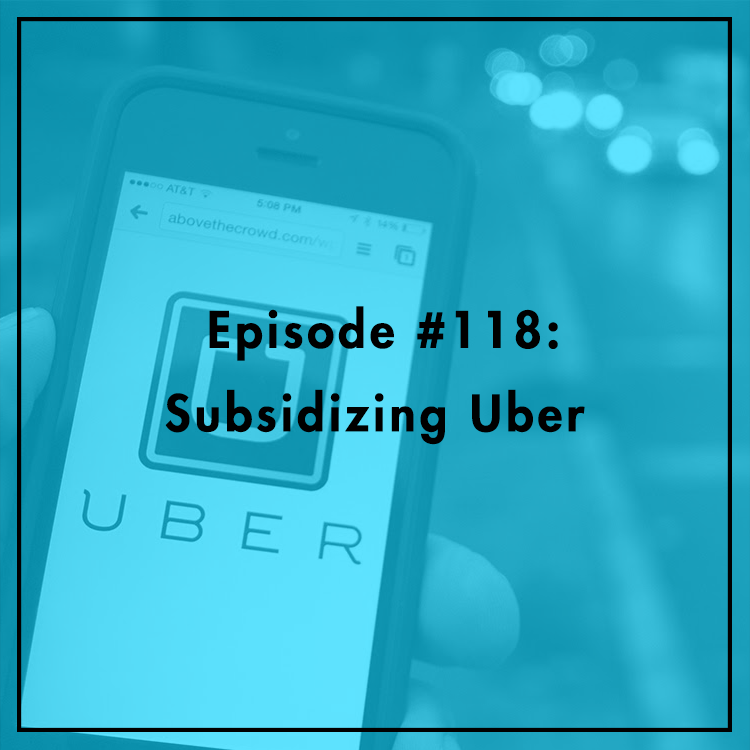
Thursday Aug 25, 2016
#118: Subsidizing Uber
Thursday Aug 25, 2016
Thursday Aug 25, 2016
When we talk about Uber and ride-sharing on this show, it's usually about regulatory battles. Today, we’re not talking about restricting or banning Uber — quite the opposite. Far from banning these platforms, some local governments are looking to subsidize ride-sharing. As cities like Washington, DC struggle with public transit, is subsidizing Uber a good alternative? Or, is this simply more intrusion by government in otherwise well-functioning markets? Jared Meyer, research fellow at the Manhattan Institute, joins the show to discuss.
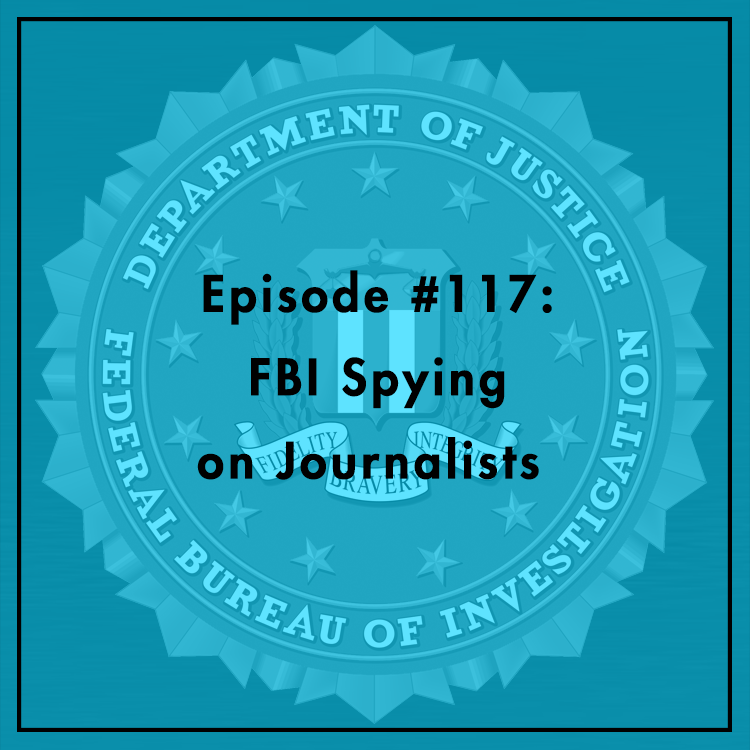
Monday Aug 22, 2016
#117: FBI Spying on Journalists
Monday Aug 22, 2016
Monday Aug 22, 2016
What happens when the FBI wants to spy on journalists? This summer, The Intercept obtained classified rules revealing a largely unrestrained procedure for obtaining journalists’ call information using national security letters. Cora Currier, the reporter who broke the story for The Intercept, joins the show to discuss. What impact does FBI spying have on journalism? Is there a chilling effect on free speech? What reforms could strike a proper balance between civil liberties and law enforcement needs?
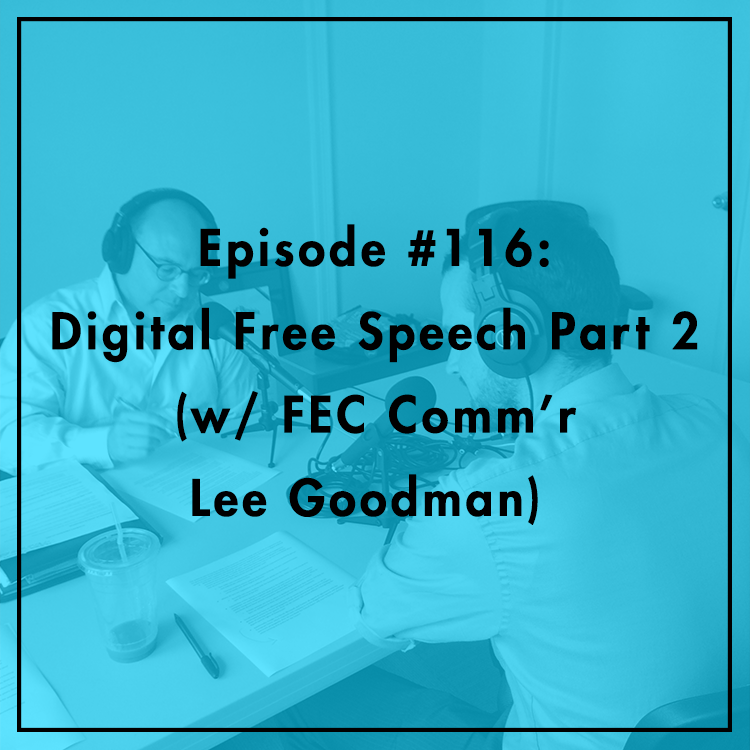
Friday Aug 19, 2016
#116: Digital Free Speech Part 2 with FEC Commissioner Lee Goodman
Friday Aug 19, 2016
Friday Aug 19, 2016
The Federal Election Commission has long taken a light-touch approach to regulating online speech. But two recent cases involving livestreaming and filming political debate resulted in split, 3-3 votes along party lines. Is digital free speech in danger? FEC Commissioner Lee Goodman joins the show to discuss. Listen to part 1 of our series on digital free speech here.
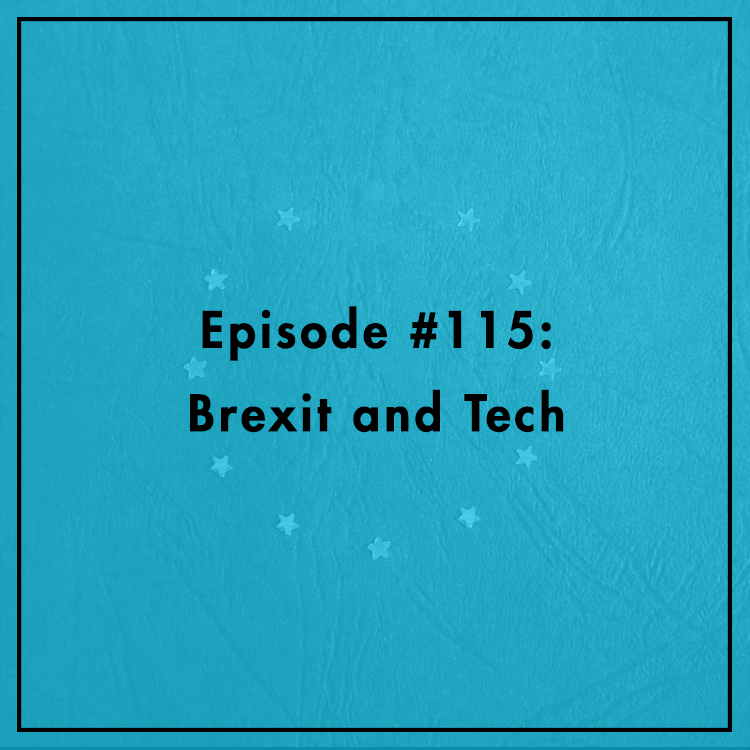
Thursday Aug 18, 2016
#115: Brexit and Tech
Thursday Aug 18, 2016
Thursday Aug 18, 2016
This summer, the United Kingdom voted to leave the European Union. Most of the fallout focused on the stock market and value of the pound, but what does “Brexit” mean for technology? Is the UK now less attractive to startups? Will Frankfurt be the new London? How will Brexit impact negotiations over cross-border data flows and the so-called “Privacy Shield” agreement? What does it mean for surveillance policy. Will Rinehart, Director of Technology and Innovation Policy at the American Action Forum, joins the show. For more, see his blog post.

